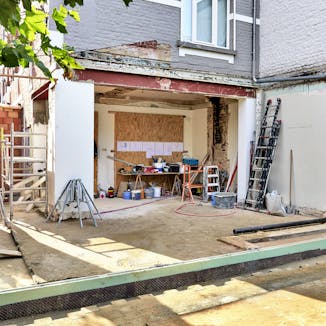Find out if you’re eligible for a £30,000 loan, see the latest rates and get a quote without impacting your credit score.
Get a decision within an hour
Quote won’t affect your credit score
Poor credit & arrears accepted







These products are only available via a broker and can't be applied for directly
We're on a mission to improve the finances of the nation by helping you to spend wisely and save money



We're on a mission to improve the finances of the nation by helping you to spend wisely and save money



By Matt Fernell, Editor at Finance.co.uk.

If you need to fund home improvements or you want to consolidate expensive debts, a £30,000 loan could be the answer. Here’s what you need to know to find a £30,000 loan that works for you.
When you compare loans with us, we’ll check your eligibility first, so you’ll only see quotes you can realistically get - with no impact on your credit score.
Get a decision within an hour
Quotes tailored to you
Get quotes from a range of trusted lenders
Poor credit history accepted
We’ve partnered with Loans Warehouse, whose award-winning service can help you find the right loan for you.
To get quotes tailored to you, we just need to understand:
The term of the loan you want
Your financial situation
Your personal details
We’ll be in touch within an hour with a decision and to talk you through your options to help you find the right £30k loan.
To be eligible for a £30k loan, you will usually need to:
Be a UK resident
Be at least 18 years old or 21 with some lenders
Be in full-time employment with a steady income
Have a good credit score
Most loans for £30,000 are only available as secured loans, which means you’ll also need to be a homeowner with an existing mortgage to apply. Here's everything you need to know about how secured loans work.
Some lenders also stipulate that you must hold a bank account with them to qualify for one of their loans.
When you compare quotes with us, we’ll only show you loans you’re eligible for so you can apply with confidence.
Most personal loans are only available for between £1,000 and £25,000, but it can be possible to find an unsecured loan for £30,000.
Not many lenders offer personal loans for £30k, so your options will be limited. You will also need an excellent credit score to qualify, and you’ll probably be charged a higher interest rate than a secured loan.
This is because unsecured loans are considered more risky by lenders as they don’t have your property as security if you cannot make your repayments.
To determine how much a £30,000 loan will cost to repay, you need to know the interest rate (APR) and the loan term. Things like your credit rating and your finances will influence the APR you get.
For example, if you wanted a £30,000 loan over 5 years at an APR of 8.5%, your monthly repayment would be £610.96, with a total repayable amount of £36,657.77. This means the loan would cost you £6,657.77 in interest over the 5 years.
If you extend the loan term, you can reduce your monthly payments, but it will mean you’ll pay more interest overall.
For example, the same loan over 10 years would be just £366.93 a month, but the overall cost would be £14,032.16 because the total amount repayable would be £44,032.16.
When deciding what loan term you want, try to work out the maximum amount you can afford to repay each month. It’s a good idea to keep the loan term as short as possible to save on interest overall.
You can get a £30k loan if you have a poor credit rating, but you may have to pay higher interest rates, and you will have less choice of lenders.
Secured loans are usually easier to get than unsecured ones if you have poor credit. Lenders are more willing to lend to you on a secured loan basis because they have the security of using your home to make up any losses they suffer if you cannot make your repayments.
A loan with bad credit usually comes with a higher interest rate, so you must make sure you can afford the payments. If you struggle to keep up with the repayments, it could damage your credit rating further or even put your home at risk.
If you’re struggling to manage your borrowing and improve your credit rating, you could get a debt consolidation loan to pay off your debt, leaving you with just one manageable payment.
The information provided does not constitute financial advice, it’s always important to do your own research to ensure a financial product is right for your circumstances. If you’re unsure you should contact an independent financial advisor.
APR is short for Annual Percentage Rate. It's a calculation of the overall cost of your loan and takes into account all the costs during the term of the loan, including set up charges and the interest rate. Any extra fees are added to the loan amount before interest is calculated.
Most lenders aren’t concerned with how you will use your loan, so you can effectively spend it on whatever you like. You may be asked what the funds are for during the application process, but this is usually to help find the right loan deal for you. Some of the main reasons for getting a £30k loan include:
Paying for home improvements
Consolidating any existing debts
Financing a new business
Paying for a big purchase like a new car or an event like a wedding
However, some lenders do have exclusions and won’t lend for things like:
Gambling or high-risk investments
Purchases of property or land
Timeshares
A £30,000 loan is a big commitment that comes with regular monthly payments, so you should only borrow such a large amount if you really need to.
You should get the money in your account within a few days of your loan being approved. However, the application for a secured loan can take a lot longer than a personal loan because the lender will need to do more checks, and you may need to submit more documentation.
The lender may want to conduct a valuation of your property, and you’ll need to provide proof of ownership and your latest mortgage statement.
Most lenders allow you to repay your loan early, but you will probably need to pay an early repayment charge (ERC).
How much you’re charged will depend on several factors, including how much you have left to repay, your loan type, and the lender’s policy. However, ERCs are usually based on one or two months of interest, so the closer you are to paying your loan back, the lower the charge will be.
Be sure to check the loan terms when you apply to see what the early repayment charges could be.
If you don’t think you’ll be able to repay your loan, contact the lender as soon as possible. They could be able to help by working out a new repayment plan you can afford or authorising a payment holiday to give you some time to get your finances back on track.
If you miss your repayments without telling your lender, you will probably face late payment fees and interest. It will also harm your credit rating and could put your home at risk if you have a secured loan.